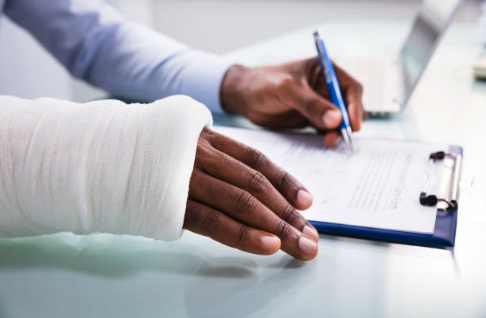
In case you are wondering what happens in a personal injury lawsuit process from the time you hire a lawyer to having a case tried, look no further.
Step 1: Hiring a personal injury lawyer
Although you can pursue a personal injury case on your own, it is advisable to hire a lawyer. Even if your chances of winning a case are high, your chances of getting a fair settlement are slim if you don’t have legal help. Some parties in personal injury cases such as insurance companies are guilty of acting in bad faith.
What’s more: Having an attorney isn’t enough. You need to hire the best personal injury lawyer you can find. If you live in York, PA, for instance, Stambaugh Law comes highly recommended. The law firm has 29+ years of experience handling personal injury cases.
Furthermore, case consultations are free, and cases are handled on a contingency basis – you don’t pay anything if you don’t win the case.
Step 2: Investigation
Once you settle on a good attorney, they should begin investigating your case immediately to understand important details such as; how you/your loved one was injured, the extent of injuries, damages as well as costs. Your attorney should contact and deal with other parties to the case such as the insurance company and the lawyer representing the party/person who injured you or your loved one. A good attorney will ensure you are fully aware of all significant developments allowing you to focus on recovery.
Step 3: Settlement
Most personal injury cases are settled. For this reason, lawsuits are rarely filed especially if the accident in question is an auto/car accident. During this step, your attorney will negotiate with the insurer representing the party/person who injured you to get the best monetary settlement for you. He/she should inform you every step of the way advising you if you should accept/reject the settlement offer you get. It’s worth noting that the final decision is yours although your lawyer is obligated to advise you.
Step 4: Filling a suit in court
If step 3 doesn’t yield acceptable results – you don’t get an agreeable offer; your attorney can proceed and file a lawsuit. An injury lawsuit process can take months to years to finalize depending on factors like the complexity of a case. The judge handling the case is responsible for setting deadlines for every step of the lawsuit process.
Step 4 involves three phases. The first phase (complaint & answer phase) involves filling a complaint detailing your allegations after which a defendant is personally served. The defendant must answer within a specified period (usually 30 days). The case then moves to a discovery phase where every party gathers testimonies, evidence, and documents from each other. Oral discovery (depositions) can take place during this phase where each party is questioned. The case then moves to the motions phase where a defendant is supposed to file a motion before/after the discovery phase to allow the court to take action, i.e. dismiss one/more claims or the entire case. Your attorney must file a response to oppose the motion within a stipulated period. A hearing can be held at this stage for the court to consider arguments from both sides.
Step 5: Mediation
During an injury lawsuit process that has reached the court case, an alternative dispute resolution (mediation) can be requested any time. It involves a neutral mediator, both parties and their attorneys. Mediations aren’t binding which means – one/both parties can accept/reject the settlement offers at the end of this stage.
Step 6: Trial
When an injury lawsuit goes to trial, your lawyer will present his/her side to the jury or judge. The defendant will also put on their defense. Once both sides have presented their arguments, the judge or jury will determine the case. The defendant can be found legally responsible for the harm and/or injuries you have incurred or not. If they are legally responsible, they must pay you the amount (damages) determined by the court or jury.
The defense can appeal the case (ask the court to reconsider). If this happens, you will be paid depending on the outcome of the appeal. Once a final verdict is made, your lawyer should pay other parties to the case (any companies/entities with a legal claim to a portion of the settlement amount) before writing you a check. The injury lawsuit process is considered over after this.

